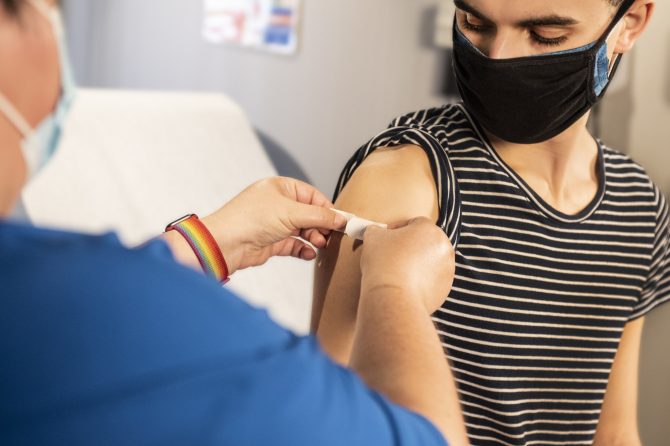
What is the risk of recurrent facial palsy with the COVID-19 vaccination?
As the pandemic rages on, and we are hearing rumblings of needing booster shots, I have been fielding several questions from my patients about the risk of recurrent facial palsy from the COVID-19 vaccines.
There is a significant risk of developing facial palsy if you contract COVID-19; data indicates an approximately 7 times greater risk of developing facial paralysis in patients with COVID-19 than those without the disease. In patients with a history of facial paralysis, more than 8% of those infected with COVID showed signs of recurrent facial paralysis.
The trials for the Pfizer and Moderna vaccines show approximately 3.5 times greater risk for developing facial paralysis when compared to annual data for the general population. The Pfizer and Moderna vaccines are mRNA-based, and the episodes of facial palsy have been mostly shown to occur shortly after the second dose. Notably, there seems to be no increased risk of facial paralysis in patients receiving a viral vector vaccination, such as the Johnson & Johnson single-dose shot; however, the protection provided by the J&J vaccine is notably lower as well.
Ultimately, the benefits of vaccination appear to outweigh the risks with respect to facial paralysis in the general population, and especially in the population of patients with prior history of facial paralysis. If you are a patient who has suffered from facial paralysis and are on the fence about obtaining your vaccination, I am glad to provide guidance on how to minimize any potential risk for recurrence with suppressive doses of antiviral medication during the vaccination process.
Currently, there isn’t enough research or data on the recently-approved Pfizer booster shots, but I will provide updates as necessary.
If you haven’t yet had the opportunity, take a look at my recent educational video on sudden facial paralysis, non-surgical treatments, and how to determine if you’re a candidate for surgical intervention.
Leave a reply